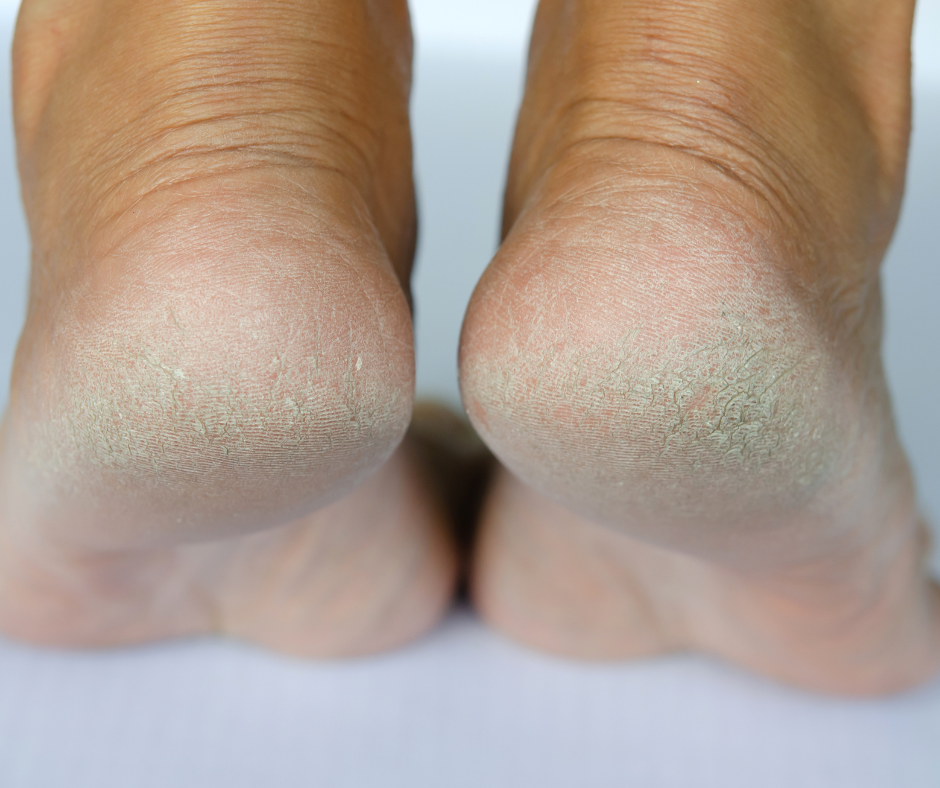Are Your Cracked Heels a Sign of Thyroid Disease?
January is Thyroid Disease Awareness Month, and it’s a great time to create awareness among our patients about thyroid dysfunction and how it affects the body, particularly the feet and ankles. Today, Dr. Ross Cohen of The Foot & Ankle Center of Maryland in Anne Arundel County, Maryland, is sharing what you need to know.
About Thyroid Disease
Hypothyroidism is a term used to describe an underactive thyroid gland. The improper activity of this butterfly-shaped gland, which is located at the base of the neck, can lead to increased dryness and thickness of the skin. It’s just one of the many symptoms associated with this condition, but not the most common one.
While there can certainly be other factors causing increased dryness, such as psoriasis, diabetes, and eczema, thyroid disorder should not be discounted without proper tests being done. Proper testing can help reach a diagnosis for thyroid disorders.
We find that patients with hypothyroidism often complain of cracked, dry heels and joint and foot aches and pains. These symptoms can be controlled and treated by a podiatrist, and some easy home remedies such as warm foot soaks and moisturizing the feet.
If you experience dry skin, do the following.
Discuss the condition with your family. If thyroid disease runs in your family, you are at an elevated risk of developing the condition. Talk to your family about any symptoms, treatment, and related conditions. Your podiatrist can use this important information during your next appointment to determine the course of treatment.
Schedule a visit with a professional. Cracked, dry skin can be a common symptom of another disease. Don’t try to self-diagnose your condition – instead, consult a professional podiatrist. Apply a good moisturizer as part of your daily foot hygiene routine to help repair the damaged skin and restore moisture to it.
Get the required testing. Alterations in the texture of your nails, skin, and hair are the first detectible sign of thyroid disease. Specialists like podiatrists can help patients identify the first indications of the disease. There are thyroid function tests that can help detect a thyroid disorder. Scheduling an appointment with your podiatrist early on can prevent unnecessary problems.
If you think you have foot pain from an underactive thyroid, you need treatment! Contact the office of Dr. Ross Cohen of The Foot & Ankle Center of Maryland in Glen Burnie, Maryland, at (410) 761-3501 to schedule your first appointment for 2023!
